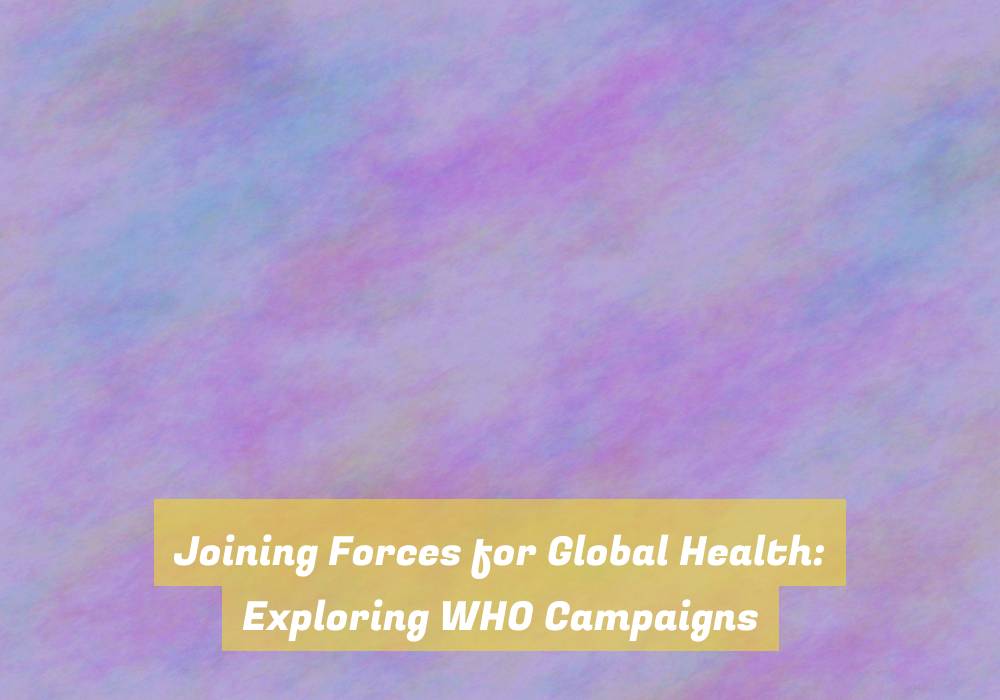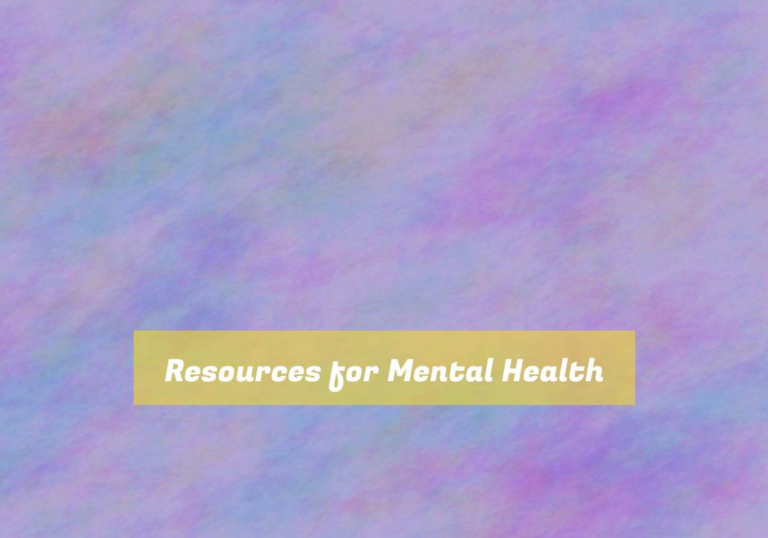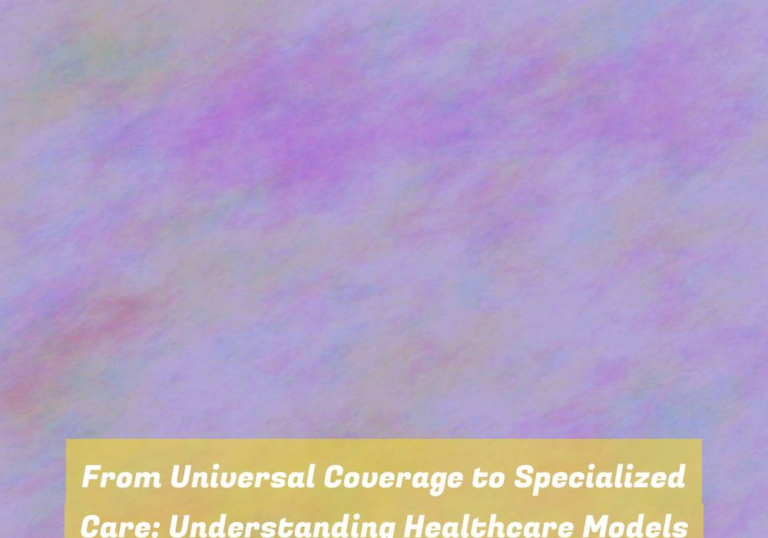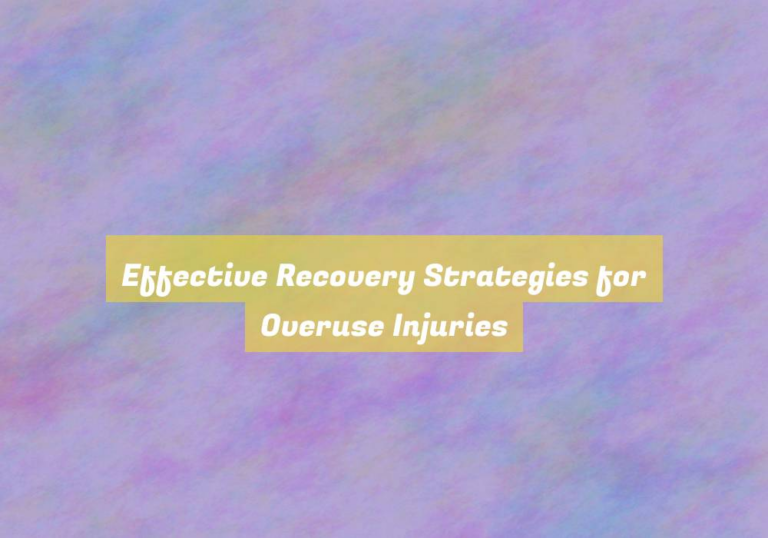Joining Forces for Global Health: Exploring WHO Campaigns
Are you aware of the impact that the World Health Organization (WHO) has on global health?
From vaccination campaigns to disease prevention initiatives and maternal and child health programs, WHOG??s efforts are crucial in addressing health challenges worldwide.
But have you ever wondered about the specific campaigns and initiatives they are working on, and how you can be a part of these efforts?
Understanding the scope and impact of WHOG??s work can provide valuable insights into how we can collectively address global health issues.
WHOG??s Vaccination Campaigns
Explore WHOG??s efforts to promote vaccination campaigns worldwide.
The World Health Organization (WHO) has been at the forefront of advocating for vaccination as a crucial public health intervention. By collaborating with governments, health organizations, and communities, WHO has been instrumental in promoting vaccination campaigns to combat diseases such as polio, measles, and now COVID-19.
Through its global network and partnerships, WHO provides technical support, resources, and guidance to countries to strengthen their immunization programs. Additionally, WHO conducts research to develop new vaccines and improve existing ones, ensuring their safety and efficacy.
WHOG??s vaccination campaigns aim to reach vulnerable populations, enhance vaccine access, and address vaccine hesitancy. By working closely with local health authorities, WHO tailors its campaigns to meet the specific needs of different communities, taking into account cultural, social, and economic factors that may affect vaccine uptake.
Through these efforts, WHO strives to ensure equitable access to vaccines and protect individuals and communities from vaccine-preventable diseases. Joining forces with WHO in supporting vaccination campaigns can contribute to a healthier and more resilient global population.
Disease Prevention Initiatives
In implementing disease prevention initiatives, WHO actively engages with global partners to develop comprehensive strategies for combating infectious diseases and promoting public health. By collaborating with various stakeholders, including governments, non-profit organizations, and research institutions, WHO works to identify the most pressing health challenges and implement evidence-based interventions.
One of the key focuses of WHOG??s disease prevention initiatives is to address the underlying factors that contribute to the spread of diseases, such as inadequate sanitation, lack of access to clean water, and limited healthcare infrastructure.
Furthermore, WHO spearheads campaigns to raise awareness about preventive measures, such as vaccination, vector control, and hygiene practices, to empower communities in safeguarding their health. Through these initiatives, WHO not only seeks to prevent the outbreak and transmission of infectious diseases but also aims to reduce the burden on healthcare systems and improve overall societal well-being.
Maternal and Child Health Programs
As part of its global health initiatives, WHO actively supports maternal and child health programs aimed at reducing preventable deaths and improving the well-being of mothers and children worldwide. These programs focus on providing essential healthcare services to pregnant women and children, including prenatal care, skilled birth attendance, postnatal support, immunizations, and nutrition interventions. WHO collaborates with governments, non-governmental organizations, and other stakeholders to strengthen health systems, train healthcare workers, and ensure access to quality maternal and child healthcare services in underserved communities.
One of the key objectives of these programs is to reduce maternal mortality rates by ensuring access to safe and respectful maternity care. Additionally, efforts are directed towards preventing childhood illnesses and deaths through vaccinations, education on proper nutrition, and the promotion of breastfeeding. WHO also works to address the underlying social, economic, and cultural factors that impact maternal and child health, advocating for gender equality, education for girls, and poverty reduction initiatives.
Global Health Policy Advocacy
Advocating for global health policy involves actively promoting and implementing measures that build upon the progress made in maternal and child health programs, aiming to further improve healthcare access and outcomes for vulnerable populations worldwide. It requires engaging with policymakers and stakeholders to shape policies that prioritize equitable access to essential healthcare services, strengthen health systems, and address social determinants of health.
By advocating for evidence-based policies, you can contribute to the development of frameworks that address the root causes of health disparities and promote sustainable solutions. This advocacy extends beyond national borders, as global health policy advocates work to foster cooperation and collaboration between countries to address common health challenges.
Furthermore, it involves raising awareness about the importance of international partnerships and advocating for increased investment in global health initiatives. Your active involvement in global health policy advocacy can lead to the implementation of policies that have a meaningful impact on the well-being of communities worldwide, ultimately contributing to the achievement of health equity on a global scale.
Conclusion
So, join forces with WHO to make a real impact on global health.
Together, we can support vaccination campaigns, disease prevention initiatives, maternal and child health programs, and global health policy advocacy.
LetG??s work hand in hand to improve health outcomes for all people around the world.
ItG??s up to us to make a difference, and with WHO leading the way, we can truly make a positive impact on global health.






